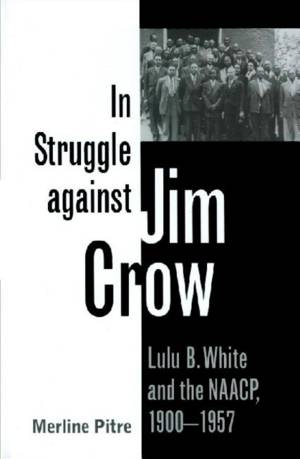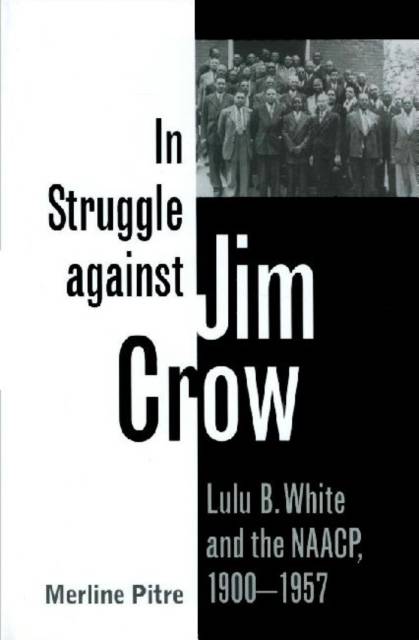
- Retrait gratuit dans votre magasin Club
- 7.000.000 titres dans notre catalogue
- Payer en toute sécurité
- Toujours un magasin près de chez vous
- Retrait gratuit dans votre magasin Club
- 7.000.0000 titres dans notre catalogue
- Payer en toute sécurité
- Toujours un magasin près de chez vous
In Struggle Against Jim Crow
Lulu B. White and the NAACP, 1900-1957
Merline Pitre
Livre broché | Anglais | Centennial Series of the Association of Former Students Texas A & M University (Paperback) | n° 81
27,45 €
+ 54 points
Description
African American women have played significant roles in the ongoing struggle for freedom and equality, but relatively little is known about many of these leaders and activists. Most accounts of the civil rights movement focus on male leaders and the organizations they led, leaving a dearth of information about the countless black women who were the backbone of the struggle in local communities across the country. At the local level women helped mold and shape the direction the movement would take. Lulu B. White was one of those women in the civil rights movement in Texas. Executive secretary of the Houston branch of the NAACP and state director of branches, White was a significant force in the struggle against Jim Crow during the 1940s and 1950s. She was at the helm of the Houston chapter when the Supreme Court struck down the white primary in Smith v. Allbright, and she led the fight to get more blacks elected to public office, to gain economic parity for African Americans, and to integrate the University of Texas. Author Merline Pitre places White in her proper perspective in Texas, Southern, African American, women's, and general American history; points to White's successes and achievements, as well as the problems and conflicts she faced in efforts to eradicate segregation; and looks at the strategies and techniques White used in her leadership roles. Pitre effectively places White within the context of twentieth-century Houston and the civil rights movement that was gripping the state. In Struggle Against Jim Crow is pertinent to the understanding of race, gender, interest group politics, and social reform during this turbulent era. Merline Pitre is professor of history and former dean of the College of Arts and Sciences at Texas Southern University. Her specialization is U.S. Reconstruction and African American history, particularly in Texas.
Spécifications
Parties prenantes
- Auteur(s) :
- Editeur:
Contenu
- Nombre de pages :
- 181
- Langue:
- Anglais
- Collection :
- Tome:
- n° 81
Caractéristiques
- EAN:
- 9781603441995
- Date de parution :
- 30-06-10
- Format:
- Livre broché
- Format numérique:
- Trade paperback (VS)
- Dimensions :
- 152 mm x 229 mm
- Poids :
- 294 g

Les avis
Nous publions uniquement les avis qui respectent les conditions requises. Consultez nos conditions pour les avis.






